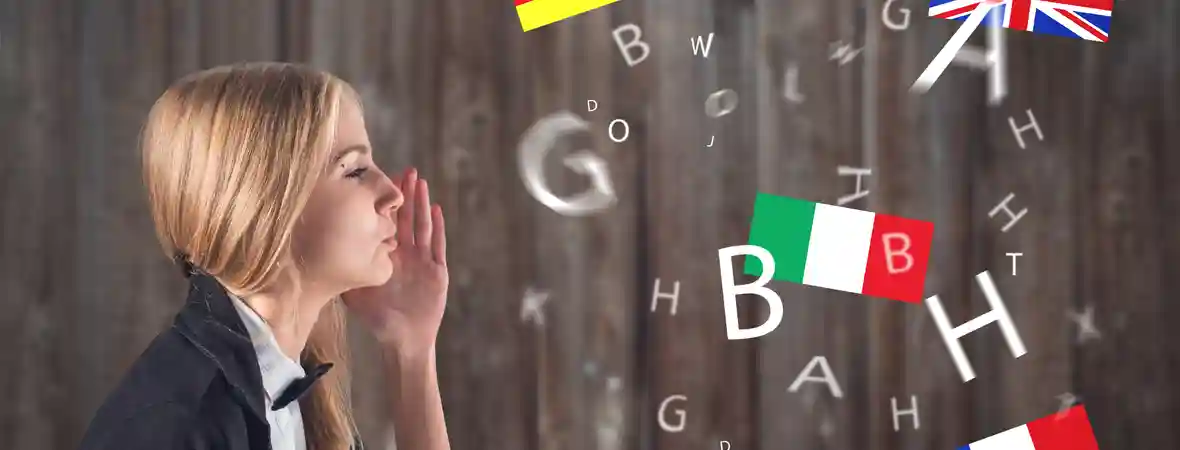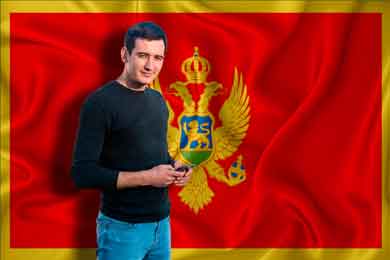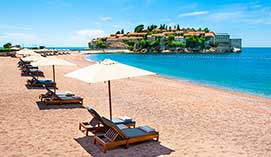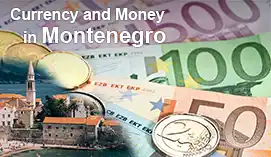What language spoken in Montenegro

Tucked on the postcard-perfect Adriatic coast, Montenegro is a relatively young country with a fascinating — and complicated — language.
A Bit About Montenegro
Montenegro was once part of Yugoslavia. But in 2006, the country gained its independence. Today, Montenegro is one of the fastest-growing tourist destinations in the world thanks to its picturesque landscape and adventure-filled mountains.
Montenegrin: The Official Language That Barely Anybody Speaks
What is the language spoken in Montenegro? Officially, it’s Montenegrin — but barely anybody speaks it!
A 2003 census revealed that only 25 percent of Montenegro’s population uses the national language. Instead, most residents speak Serbian. Albanian, Bosnian, and Croatian are also standard in some regions. And don’t be surprised if you hear a lot of Russian while in the country. Montenegro is to Baltic oligarchs as the Hamptons is to wealthy American celebrities — they all have summer homes there!
So what gives? Why do so few Montenegrins speak Montenegrin!?
The answer lies in the country’s shifting sociopolitical status. For decades, it was part of Yugoslavia, where Serbian was the mother tongue. So when Montenegro struck out on its own, most of the residents who’d grown up speaking Serbian continued to do so, and they passed it on from generation to generation.
Montenegrin: A Mix of Alphabets
The Montenegrin language is unique in that it uses two alphabets: Cyrillic and Latin. Slavic languages, like Russian, use Cyrillic letters. Romance languages — including English — use Latin ones.

The decision to double-fist alphabets came about in 2007 when officials instituted the Council for the Codification of the Montenegrin Language. The board’s job was to standardize Montenegrin to better comply with international standards. Since the language previously used Cyrillic and Latin letters, authorities concluded that official documents would henceforth be written in both alphabets.
As you might imagine, it mushroomed into a clunky process that’s had locals crying government excess ever since.
Poultry Mouth: Montenegrin Curse Words
It's never a good look to roll up into a foreign country spewing curse words - but that’s easier said than done in Montenegro! For example, if, while there, you bounce into a McDonald's and ask for chicken McNuggets, the cashier may refuse to serve you because “chicken” is an obscene word in Montenegrin! The same goes for the word "matches."
So what's the lesson? When travelling through Montenegro, have a phrasebook handy!
Communicating in Montenegro
Do locals speak English in Montenegro? It depends. As is the case in most European countries, lots of folks living in and around cities speak English reasonably well. However, things can get linguistically dicey the further you venture into rural areas.
Typically, country dwellers in Montenegro speak regional dialects of either Serbian, Croatian, Albanian, and Montenegrin, and it’s rare to run across a fluent English speaker. That said, with a translation app and a little patience, getting by without speaking the language is possible when travelling through Montenegro.
TL;DR: Montenegrin is a unique language with two alphabets — but only 25 percent of Montenegro's population speaks it. If you attempt to get your Montenegrin on, be careful! Mentioning poultry and incendiary devices may cause great offense!




